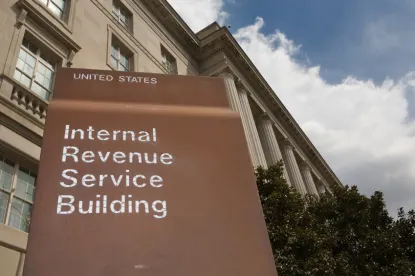The Internal Revenue Service (IRS) has published Notice 2021-26 to provide answers regarding the taxability of benefits received in 2021 and 2022 under a dependent care assistance program (DCAP) that permits carryovers or extended grace periods. In a prior article, we discussed the carryovers and extended grace periods that were permitted as part of the Consolidated Appropriations Act, 2021. The notice clarifies that carryovers and extended grace periods will not cause DCAP benefits to be subject to tax and will not apply against the limit on DCAP benefits in Internal Revenue Code (IRC) Section 129 in subsequent years.
Following passage of the Consolidated Appropriations Act, 2021, commentators pointed out the apparent tax consequences resulting from the interaction of the carryover and extended grace period provisions with Code Section 129, which excludes DCAP benefits from gross income when they are paid or reimbursed — not when they are contributed. Thus, a person could be paid or reimbursed for amounts over the Code Section 129 limit in a year because amounts were carried over or remain available through an extended grace period.
Fortunately, in the notice, the IRS concluded that it was “inherent” in the legislation permitting the carryovers and extended grace periods that benefits remaining available in subsequent years would not be subject to tax when used. As such, if the DCAP benefits would have been excluded from income if used in 2020 or 2021, the benefits will remain excluded from income if used in 2021 or 2022, as applicable, and will be disregarded for purposes of applying the limits on DCAP benefits in 2021 and 2022.
EXAMPLE: Assume a participant elects to contribute $10,500 to a DCAP in 2021 (permitted under the increased DCAP limit discussed below) and $5,000 in 2022. The participant incurs no dependent care expenses in 2021, so the $10,500 in 2021 DCAP contributions are carried over to 2022. The participant incurs and is reimbursed for $15,500 in dependent care expenses in 2022, when the Code Section 129 limit is expected to be $5,000. Absent any relief, a literal reading of Code Section 129 would result in $10,500 of the reimbursements being subject to tax. However, under the notice, the $10,500 in reimbursements would not be taxable.
In addition to this clarification, the notice explains how DCAP benefits may become taxable when provided under a non-calendar year cafeteria plan that has increased the DCAP limit for 2021 to $10,500 ($5,250 if married filing separately) as permitted under the American Rescue Plan Act of 2021. In short, the inherent disconnect between the contribution limit, which follows the plan year, and the reimbursement limit, which follows the calendar year, can result in a participant contributing more during the plan year than can be reimbursed tax-free in 2022. Few employers maintain non-calendar year cafeteria plans, but those who do may want to avoid adopting the increased limit for this reason or should educate participants on the potential tax consequences if the increased limit is implemented.





 />i
/>i

